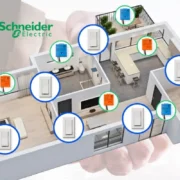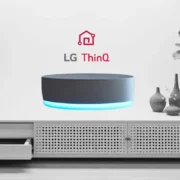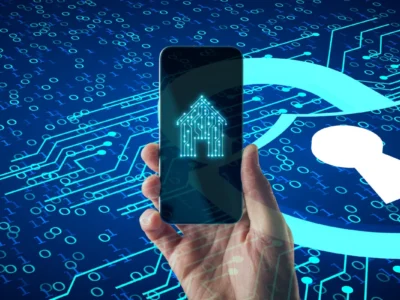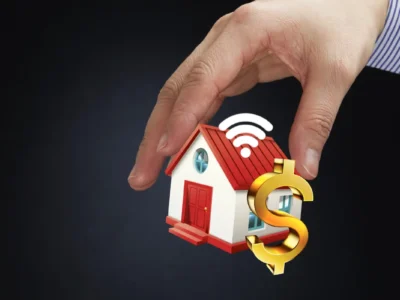Introduction
The rapid evolution of technology has introduced us to the world of smart homes, where devices seamlessly communicate to provide unparalleled comfort and convenience. The notion of automating mundane tasks while controlling home environments remotely has become increasingly attractive. But, the pressing question remains: Is home automation a major lifestyle adjustment?
This blog will provide an in-depth analysis of how smart homes impact daily lives, explore the challenges faced by new adopters, and determine if home automation is truly a significant lifestyle shift.
What Is Home Automation?
Home automation, often referred to as a “smart home,” involves the integration of advanced technology into everyday household systems. This includes lighting, security, climate control, entertainment, and appliances that can be controlled remotely via smartphones, tablets, or computers.
Key components of home automation include:
- Smart Assistants: Voice-controlled devices like Amazon Alexa or Google Assistant.
- Security Systems: Cameras, doorbell cameras, motion sensors, and smart locks.
- Climate Control: Smart thermostats and intelligent blinds.
- Appliances: Automated washing machines, smart refrigerators, and robotic vacuum cleaners.
These components are interconnected, providing homeowners with control and information at their fingertips.
How Home Automation Transforms Daily Life
The adoption of home automation has several potential impacts on daily life. Here are some of the key transformations it brings:
3.1 Increased Convenience
With home automation, daily chores are simplified. For instance:
- Automated Lighting: Lights can turn on/off based on occupancy, reducing the need to flip switches.
- Voice Commands: Smart assistants allow for hands-free control of entertainment systems, lighting, and more.
- Smart Scheduling: Appliances can be scheduled to operate at optimal times, making mundane tasks effortless.
3.2 Enhanced Security
Security remains one of the primary motivations for adopting smart home technology. Features include:
- Remote Surveillance: Homeowners can monitor their property via live-stream cameras from anywhere.
- Smart Locks: Doors can be locked or unlocked remotely, and access can be granted to specific individuals temporarily.
- Motion Detection: Suspicious activity triggers alerts, allowing for immediate action.
3.3 Energy Efficiency
Reducing energy consumption is a significant benefit of home automation. Examples include:
- Smart Thermostats: Automatically adjusting temperatures based on occupancy, weather, or schedule.
- Efficient Lighting: Lights dim or switch off when not needed, reducing unnecessary energy usage.
- Energy Monitoring: Real-time data provides insights into energy consumption, promoting sustainable habits.
Challenges of Adopting Home Automation
While home automation provides numerous benefits, there are also challenges that must be addressed.
4.1 Technological Complexity
The integration of multiple devices into one ecosystem can be challenging. Issues include:
- Compatibility Problems: Devices from different brands may not always work seamlessly together.
- Technical Knowledge: Setting up and maintaining smart systems require some technical know-how, which may deter less tech-savvy individuals.
4.2 Privacy Concerns
As smart home devices collect data, privacy remains a significant concern. Points to consider:
- Data Security: Personal information may be exposed to hackers if not properly secured.
- Voice Assistants: Devices like smart speakers may inadvertently record private conversations.
4.3 Cost Factors
The initial investment in smart home technology can be significant. Considerations include:
- High Upfront Costs: Devices and installation fees can quickly add up.
- Maintenance Expenses: Continuous software updates and occasional hardware repairs may be required.
Is Home Automation a Major Lifestyle Adjustment?
Is home automation a major lifestyle adjustment? The answer to this question is subjective and varies depending on individual preferences, lifestyle, and openness to technology.
- Major Adjustment for Some:
- Those less familiar with technology may find it challenging to integrate and maintain smart devices.
- Concerns about privacy and data security may require a mindset shift and increased vigilance.
- Minor Adjustment for Others:
- Tech-savvy individuals often find it relatively easy to adopt smart home technologies.
- The convenience and security benefits can outweigh the perceived lifestyle changes.
Ultimately, while there is an initial learning curve and some lifestyle adjustments required, the long-term benefits often make it worthwhile.
Conclusion
Home automation, with its innovative features, transforms daily life through enhanced convenience, security, and energy efficiency. While challenges like technological complexity, privacy concerns, and cost exist, they can be mitigated through careful planning and informed decision-making.
Is home automation a major lifestyle adjustment? It depends on one’s familiarity with technology and willingness to adapt. Nonetheless, for those who embrace it, the benefits can lead to a more comfortable and efficient lifestyle.













Comments